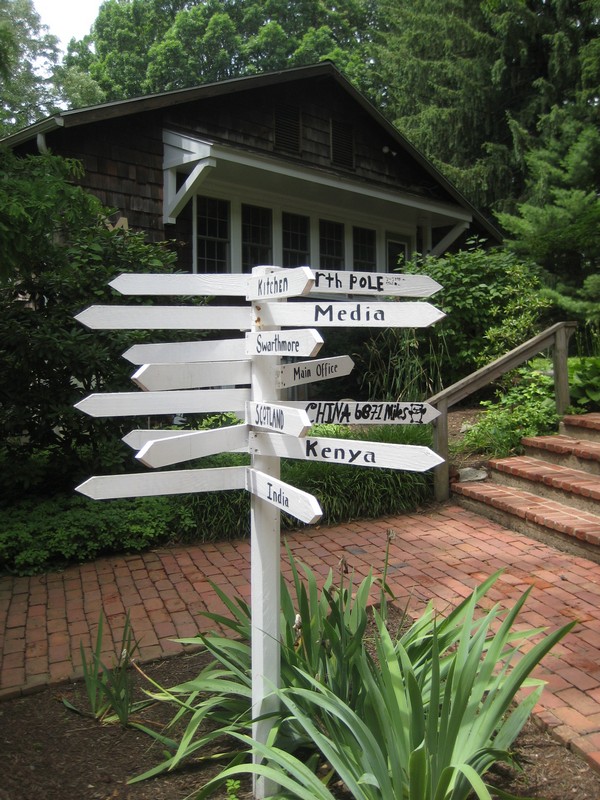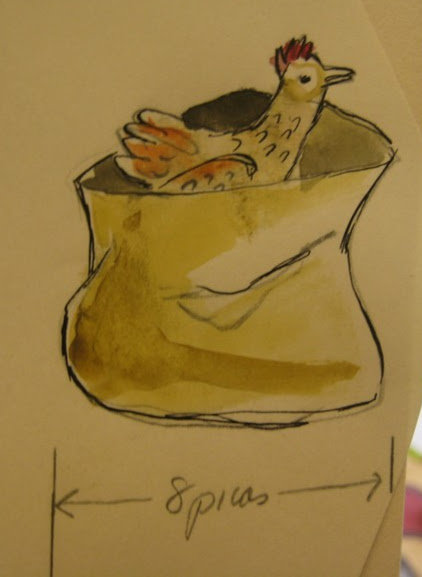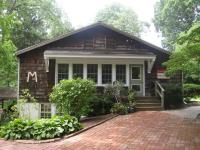The School in Rose Valley can be found at the end of a winding, woody road in Delaware County on a farm-like campus, full of nature and life,where the school has been located since 1933. The campus includes not only classrooms, but a chicken coop, a wood shop, and gardens. As a progressive school for children in preschool through sixth grade, The School in Rose Valley places on emphasis on leaning through experience in their classrooms and throughout their wooded campus.
In 1929, parents in Rose Valley sought a place to educate their children separate from the then “factory model” of schooling. Working with Dr. Carson Ryan of Swarthmore College, the parents founded the School in Rose Valley as a progressive school. Progressive education has its roots in the works of John Locke and Jean-Jacques Rousseau, whose writings espoused that education is gained not through the memorization of facts, but through experiences and observations. The School in Rose Valley looked to the work of John Dewey, an important figure in the American Progressive Movement that began in the 1880s. Dewey proposed education based on meaningful activity and participation, rather than the rote memorization and authoritarianism that were prevalent in earlier models of education.

At the School in Rose Valley, education is based on activity, where learning is hands-on, experiential, and place-based. Rather than focus on memorization of facts in the classroom, the school encourages children to learn through curiosity and questions by way of a combination of classroom study, quiet time, play, experience, and reflection. In their philosophy, The School at Rose Valley states “We believe snow and mud should be played in, rain is not an excuse to stay indoors, and classrooms and campus should house animals for children to tend.” Literacy, math, science, social studies, languages, technology, service and partnership, music, art, wood shop, and unstructured play are a part of the curriculum.
In addition to documenting the school’s history through administrative records, photographs, and videos, The Archives at The School in Rose Valley reflect the hands-on, experiential nature of the school. Student work, including plays, reports, and artwork, can be found. While surveying, we came across a special project undertaken by the first graders at The School in Rose Valley in the 1940s.

Through the work of the school, parents, and teachers, the class of six-year olds published a book for children, Henny and Jenny Penny. Not only is Henny and Jenny Penny the work of the first-graders, it also reflects the community that can be found at The School in Rose Valley. Henny and Jenny Penny is an excellent tale, and the story behind its publication, revealed in letters and notes in the archives, is full of warmth. In her letter to the American Library Association in 1948, Mrs. Robert W. Mather, wife of the president of the school board, explains the story surrounding the publication of Henny and Jenny Penny.

“Worked out by a class of first-graders under the guidance of their teacher, Eloise Holmes, who also did the illustrations in the childlike spirit of the text, it related in straightforward fashion the activities of the two bantam hens who were class pets. When Mrs. Holes died last spring, parents of her students published the narrative as a memorial.”
The Archives at The School in Rose Valley includes multiple copies of Henny and Jenny Penny, as well as proofs and original artwork by Eloise Holmes.

If you’re interested in learning more about The School in Rose Valley and progressive education, check out their archives!

